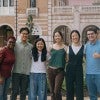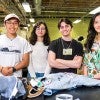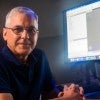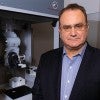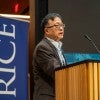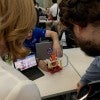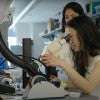Bao wins Robert Henry Thurston Lecture Award
May 16, 2025
Rice's Gang Bao has been selected to receive the Robert Henry Thurston Lecture Award from the American Society for Mechanical Engineers for his sustained contributions to the mechanics of composites, cell mechanics and nanomedicine.
National Academy of Sciences elects Lydia Kavraki as a member
April 30, 2025
Lydia Kavraki, a leading researcher in robotics, computational biomedicine and artificial intelligence at Rice, has been elected to the National Academy of Sciences, one of the world’s foremost professional societies dedicated to honoring achievement in science and outstanding original research.
Senior Spotlight: Sophianne Loh ’25
April 10, 2025
Sophianne Loh, a bioengineering major from Chicago, found her home at Rice in the strong sense of community and top-tier research opportunities.
